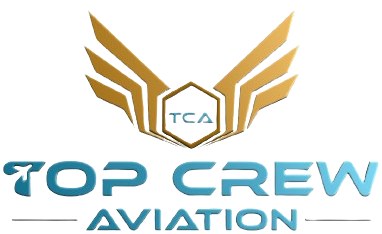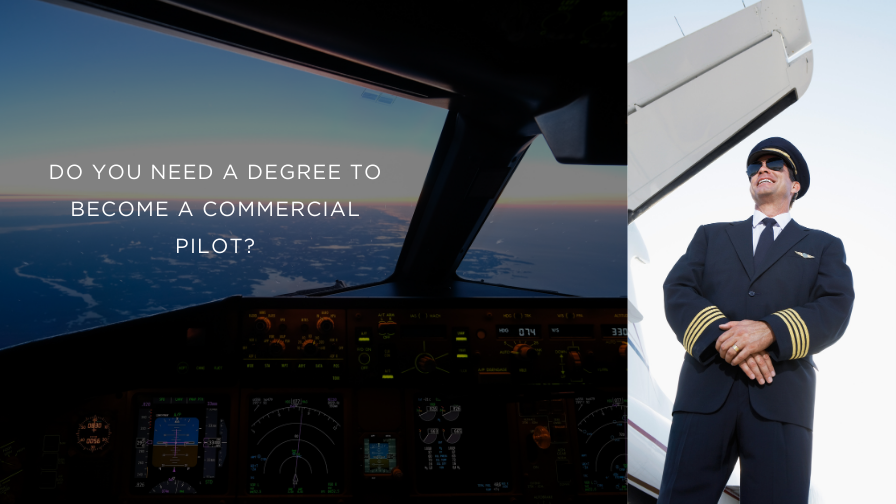When we think of pilots, the image that often comes to mind is a highly skilled professional, guiding a massive aircraft across continents with precision. But one of the most common questions aspiring aviators have is: “Do you need a degree to become a commercial pilot?” The answer is both simple and nuanced. While many professional careers demand a college degree, aviation works a little differently. In most cases, you do not need a degree to become a commercial pilot—but there are some important considerations.
This blog will explore the requirements, benefits of having or not having a degree, and what truly matters when pursuing a career as a pilot.
Understanding What a Commercial Pilot Is
Before diving into qualifications, let’s clarify what a commercial pilot does. A Commercial Pilot License (CPL) holder is authorized to fly aircraft and receive compensation for it. Unlike a Private Pilot License (PPL), which is mainly for hobby flying, a CPL allows you to work professionally with airlines, charter companies, or cargo operators.
Roles of a commercial pilot include:
- Flying passengers on domestic or international routes
- Operating cargo flights
- Working in charter and private aviation
- Engaging in aerial survey, firefighting, or medical evacuation flights
The path to becoming a commercial pilot primarily depends on licenses, flight hours, and certifications, rather than traditional academic degrees.
Read Also – How Aviation Training Can Get You Guaranteed Airline Jobs
Do You Need a Degree to Become a Pilot?
The short answer: No, you do not need a degree to become a commercial pilot in India or most parts of the world.
In India, the Directorate General of Civil Aviation (DGCA) regulates pilot licensing. The minimum requirement to enroll in CPL training is 10+2 education with Physics and Mathematics. Once you pass your medical fitness test and entrance requirements, you can begin pilot training without pursuing a college degree.
Similarly, in countries like the USA, Europe, Canada, or Australia, flight schools typically require only high school education or its equivalent.
However, some airlines—especially international carriers—prefer candidates with a degree during recruitment. This does not mean a degree is mandatory, but it can give you an edge in competitive hiring.
Minimum Educational Requirements for Pilot Training
To begin Commercial Pilot Training in India, you must meet these educational criteria:
- Qualification: 10+2 (or equivalent) from a recognized board
- Subjects: Physics and Mathematics are compulsory
- Alternative Path: If you didn’t study Physics or Mathematics in school, you can clear them through the National Institute of Open Schooling (NIOS)
So, while a college degree is not compulsory, you cannot skip these basic subjects if you want to pursue flying.
The Importance of Licenses Over Degrees
When it comes to flying an aircraft, airlines look at your licenses and hours of experience more than your college background.
The primary licenses include:
- Student Pilot License (SPL) – The entry-level license
- Private Pilot License (PPL) – For non-commercial flying
- Commercial Pilot License (CPL) – To fly professionally and earn a salary
- Airline Transport Pilot License (ATPL) – The highest license, required to become a captain
Each license requires you to complete certain flying hours, written examinations, and medical clearances. For instance, a CPL in India requires a minimum of 200 hours of flying.
So, whether or not you have a degree, what truly matters is your skill, training, and certifications.
Situations Where a Degree Can Help
Even though it’s not mandatory, there are scenarios where a degree can give you an advantage:
- Airline Preference
- Some airlines, particularly in the USA and Middle East, prefer candidates with at least a bachelor’s degree.
- Degrees in aviation, aeronautical engineering, or even management can strengthen your resume.
- Backup Career Options
- Aviation can be unpredictable. Medical disqualifications, economic downturns, or hiring freezes can affect careers.
- Having a degree ensures you have a backup plan in fields like aviation management, engineering, or business.
- International Opportunities
- While Indian airlines rarely require degrees, some foreign carriers may prioritize them.
- If you dream of flying abroad, a degree can improve eligibility.
- Personal Development
- College education enhances communication, problem-solving, and leadership skills—qualities essential for pilots.
Advantages of Not Having a Degree
Skipping a degree and directly pursuing pilot training also has benefits:
- Saves Time: Pilot training takes about 18–24 months. Adding a degree could delay your career start by 3–4 years.
- Lower Costs: Aviation training itself is expensive (₹35–50 lakhs in India). Avoiding a degree reduces financial pressure.
- Earlier Career Entry: You can start working as a professional pilot by the age of 21, gaining valuable experience sooner.
Degree vs. No Degree: A Quick Comparison
| Factor | With Degree | Without Degree |
| Time to Start Career | 5–7 years (degree + training) | 2 years (direct CPL training) |
| Cost | Higher (degree + training expenses) | Lower (only training expenses) |
| Job Eligibility | Broader, especially abroad | Still valid, especially in India |
| Backup Career Options | Available | Limited |
| Airline Preference | Higher advantage in some cases | Based purely on licenses and skills |
Steps to Become a Commercial Pilot (Without a Degree)
- Finish 10+2 with Physics and Mathematics
- Clear DGCA Class 1 Medical Test to ensure physical fitness
- Apply for Student Pilot License (SPL) at a flying school
- Start Private Pilot License (PPL) training and log flight hours
- Enroll for Commercial Pilot License (CPL) training and complete 200+ flying hours
- Pass DGCA Exams in subjects like Air Regulations, Meteorology, Navigation, and Technical General
- Apply for Airline Jobs with your CPL
Final Thoughts
So, do you need a degree to become a commercial pilot? The answer is no—a degree is not a compulsory requirement. What matters most are your licenses, flight experience, and skills. However, having a degree can still be beneficial for long-term career security and international opportunities.
If your goal is to start flying professionally as soon as possible, you can begin training right after your 12th grade. But if you want broader career options and flexibility, pursuing a degree alongside or before pilot training is worth considering.
Becoming a commercial pilot is about passion, dedication, and discipline. With the right training and determination, your dream of flying the skies can come true—degree or not.


